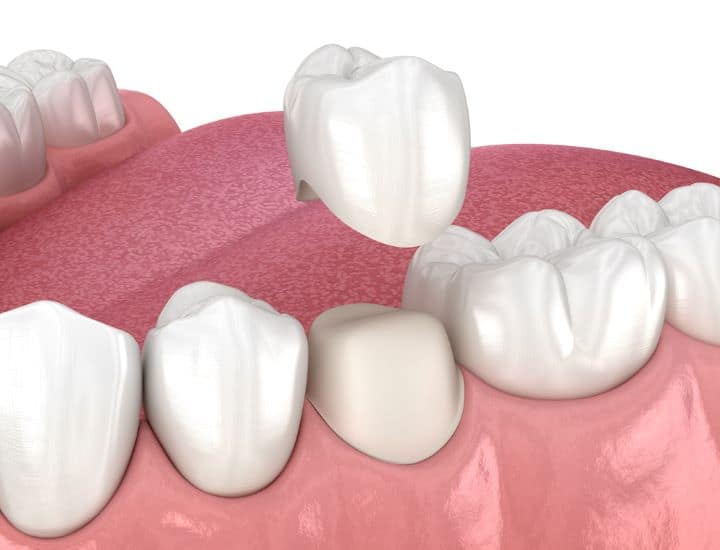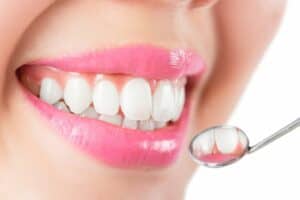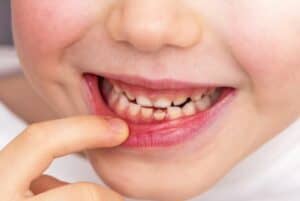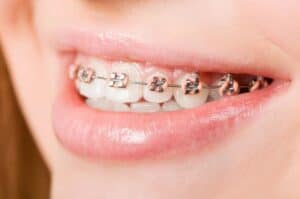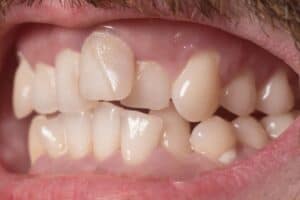Dentures are dental prostheses or dental appliances that replace missing teeth.
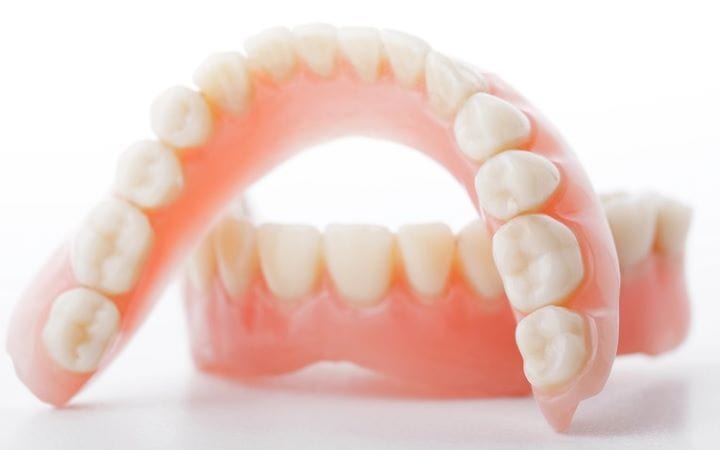
Unlike their traditional counterparts, made of wood and bones, modern dentures are comfortable, sophisticated, convenient, and as natural looking as possible.
They have been restoring not only functional balance by aiding in speaking and chewing but also esthetics by supporting facial and oral muscles.
In this article, we have emphasized the importance of dentures in maintaining oral health as well as the overall health of an individual.
Why people may need dentures
People may need dentures primarily for replacing lost teeth and secondarily for improving the overall appearance of their facial features.
Tooth loss can result from various factors such as dental decay, gum diseases, or trauma to the face.
The loss of teeth affects more than just the ability to chew; it also affects the facial appearance and with it, the self-confidence of the individual.
Importance of choosing the right type of dentures
The right type of denture should fit perfectly to facilitate the functions of chewing and speaking adequately. It should feel comfortable and natural at best.
Moreover, denture wear should not at all lead to oral sores, pain, or unexpected bone loss since a certain amount of bone loss is expected when wearing a denture.
Hence, the right type of denture should be a balance of function and aesthetics.
Types of Dentures
Complete Dentures or Full Dentures
When all the teeth of a jaw are missing, they are replaced by a complete denture.

These take support from the gums and jaw bone; the upper complete denture rests on the palate while the lower rests on the lower jaw bone.
Oftentimes, a denture adhesive or suction is used to provide better stability to the full denture so it doesn’t dislodge during speaking or chewing.
Benefits and drawbacks
While the benefits of complete dentures include restoration of function and esthetics of the face, they also come with some drawbacks.
It takes multiple appointments just to take the measurements for the denture. Moreover, once the denture is fabricated, it takes multiple appointments to adjust it to fit comfortably.
They require adjustments every few years since the jaw bone structure changes with time.
How to care for them
Brush your denture with a soft-bristled toothbrush, soak overnight, and try not to drop it. We will be covering the topic in detail in the upcoming section.
Partial Dentures
What are removable partial dentures?
Partial dentures are for those individuals who have retained some of their natural teeth and only some teeth are missing.
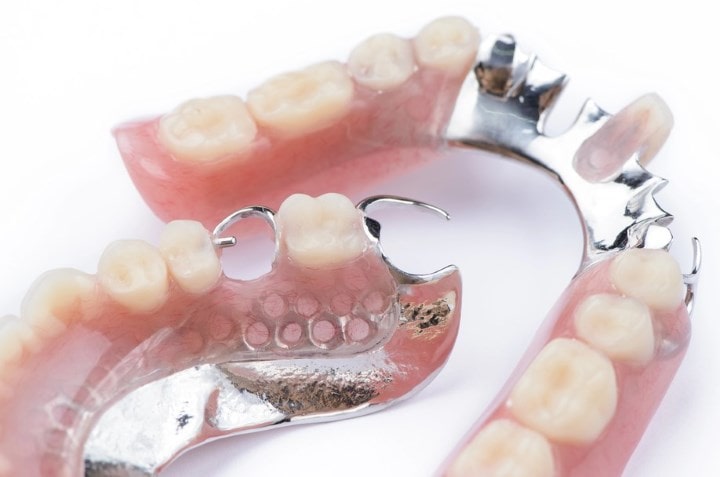
Therefore, these take support from both, the jaw bone as well as the adjacent teeth.
These have a more secure fit when compared to complete dentures since they have clasps or other such precision attachments that help them anchor better to the adjacent teeth.
Benefits and drawbacks
The primary benefit of this denture is that it prevents the natural teeth from shifting into the gap left by the lost teeth.
This, in turn, helps maintain the original teeth position of the patient while also making it easier to replace the missing teeth with a partial denture.
If the natural teeth shift into the gap, they tend to change how your teeth fit with each other which could lead to a plethora of oral problems.
On the flip side, these dentures may lead to excess pressure on the natural teeth due to the clasp arrangement. For the same reason, they are a bit tricky to clean.
How to care for them
These need more attention while cleaning, as compared to complete dentures, due to the precision attachments.
Implant-Supported Dentures
These are complete or partial dentures that are fixed onto the dental implants placed in the jaw bone.
All-on-four and All-on-six are the typical examples. The procedure involves placing the dental implants surgically into the jaw bone and the gums are allowed to cover the surgical site for complete healing of the wound.
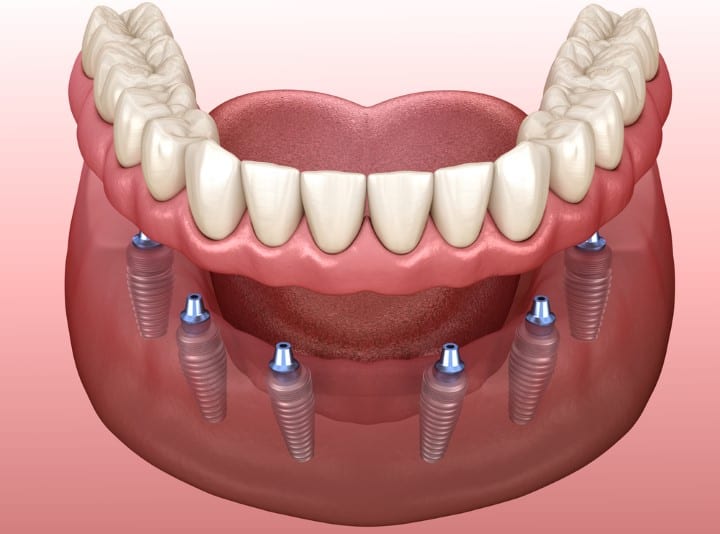
Once the wound has healed and the bone has fused with the implant, the gums are opened up and a complete or partial denture is anchored to the implants by click-lock mechanism.
Once the procedure is complete, the denture no longer remains removable but rather fixed to the implants and cannot be removed by the patient.
Benefits and drawbacks
One of the major benefits of these look and feel just like natural teeth, they are the next best thing to natural teeth. Another major benefit is the stability that comes with the use of implants.
There is no chance that the denture will dislodge while chewing or speaking. Last but not least, unlike conventional dentures, these dentures don’t cause bone loss.
However, on the downside, placing implants is a surgical procedure that requires time to heal completely.
Also, these dentures are costlier when compared to their traditional counterparts. Moreover, not everyone can be the ideal candidate for these since implants need good bone density.
Individuals with excessive bone loss need additional procedures such as bone grafting to be able to support the dental implants.
How to care for them
These dentures need a diligent oral hygiene routine since any negligence may lead to gum infection and consequent failure of the implant thereby compromising the whole denture.
Immediate dentures
These are also called Interim or temporary dentures.
As the name suggests, these are placed immediately after the teeth extraction procedure.
As is expected, they don’t fit properly and are just meant to be worn during the time it takes for the fabrication and fitting of the permanent denture.
These can be used for the first six to eight months following the tooth extraction.
Benefits and drawbacks
The drawbacks of these are that they don’t fit as properly as permanent dentures since the tissue constantly shrinks during the healing.
Another drawback is the constant need for minor adjustments that are required to make them fit as best as is practically possible. Moreover, you will have to experience some degree of soreness till you get the permanent denture since these won’t fit properly.
How to care for them
Just as for the complete or partial denture, a regular brushing routine and soaking at night works fine for these too.
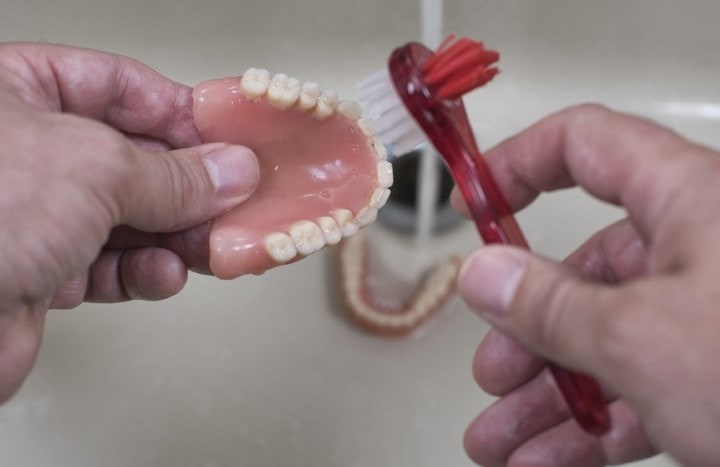
Choosing the Right Dentures for Your Needs
Multiple factors come into play when choosing the right denture for better dental health
- Budget- choose according to your budget. Talk to your dental insurance provider about how much will the insurance cover the cost of dentures and decide your budget accordingly.
- Requirement- you won’t need a full denture if only some of your teeth are missing. So, talk to your dentist and discuss all possible options to replace your missing teeth.
- Lifestyle- active people who indulge more often in sports are advised to go for more secure options such as implant-retained dentures.
Common mistakes made by people when opting for dentures
- Not knowing all options- you need to know all your options before you finalize one. Consult your dental professional to know what will suit you best.
- Not waiting before getting a denture- a perfect fit can only be achieved once the oral tissues have healed properly so it is advised to wait before you get your denture. Immediate dentures are recommended for people who have to make constant public appearances and can’t wait for permanent dentures.
- Not knowing their Insurance coverage- most people don’t do a thorough check of all the financial options that are available to them or what all do their dental insurance covers.
Maintaining Your Dentures
Maintenance of dentures requires diligence and consistency. following are some points that you can keep in mind for denture care
Cleaning Your Dentures
Denture wearers should clean their dentures based on the following guidelines-
- Clean dentures twice daily, once before wearing them in the morning and once after taking them off before going to sleep at night.
- Dentures must be brushed daily. Use a soft-bristled toothbrush and toothpaste to clean the upper and lower surface of the denture as well as the artificial teeth of the denture.
- Remove plaque by soaking the denture in baking soda solution for half an hour and then brushing it as usual.
- Denture cleaners also called denture cleansers are used to remove odor and prevent bacterial or fungal growth on dentures. Follow the instructions of your dentist on how to clean your denture using these. They are available in tablet or liquid form and each cleanser has its specific duration of soaking, so follow the instructions closely.
Storing Your Dentures
How to properly store dentures when not in use
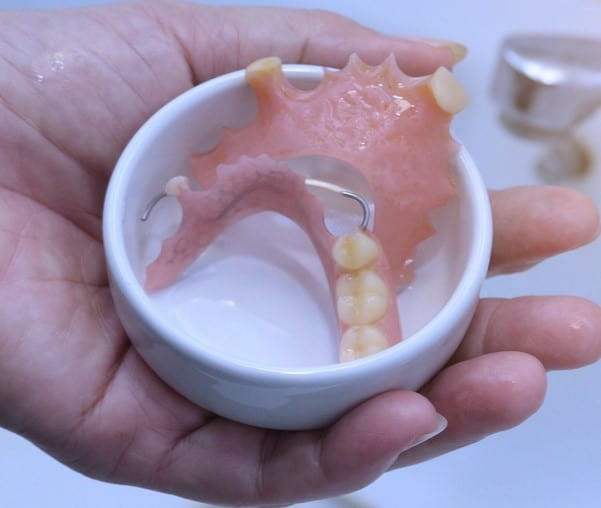
- Always immerse dentures in clean water or denture solutions but, avoid hot temperatures. Avoid exposure to extreme hot or cold temperatures since it can lead to warping or distortion of your denture.
- Before reinserting, remember to rinse the denture thoroughly to avoid ingestion of harmful chemicals.
Tips for preventing damage to dentures during storage
- Always keep your denture moist to prevent warping
- Keep away from pets and children
- Avoid dropping it since it may damage or crack the denture or break it even.
- Avoid exposure to extreme temperatures
- Avoid bleaching or scrubbing the dentures
Handling Denture Problems
New dentures require time to become adjusted to. However, if you face any of the following, book the next available slot at your dentist’s.
- Ill-fitting denture- well-fitted dentures feel comfortable and make mastication and speech so much easier. But, if you have difficulty chewing or speaking, chances are your denture needs some more adjustments. So, book an appointment with your dentist to get your denture fitted perfectly.
- Mouth and gum infections– denture stomatitis or thrush is a common fungal infection from which denture wearers might suffer. If you are experiencing pain, redness, white or red patches, and cracks at the corners of your mouth, contact your dentist immediately for timely treatment.
- Oral sores and ulcers- sometimes a well-fitted denture also might require some time to completely settle on your gums and palate. Ask your dentist for oral gels that not only soothe the ulcers but also prevent infections.
Alternatives to Dentures
Dental bridges and Dental implants are some of the alternatives for dentures but every individual has unique requirements and hence it is better to take advice from your dentist on what is best for one.
Conclusion
Dentures make life convenient and fulfilling. However, choose your denture only after looking through all the options available for your dental condition. Once you have your perfect denture, take care and avoid fixing problems with your dentures on your own.
Frequently Asked Questions
1. How long do dentures last?
Dentures may last anywhere from 5 to 7 years depending on the use and care. However, they might need relining and rebasing more frequently.
2. What are the side effects of wearing dentures?
Bacterial growth, denture stomatitis, bone loss, and denture wear are some of the side effects of wearing dentures for more than the recommended duration.
3. Why should you remove dentures at night?
If not removed at night, dentures can cause gum irritation due to prolonged use.

